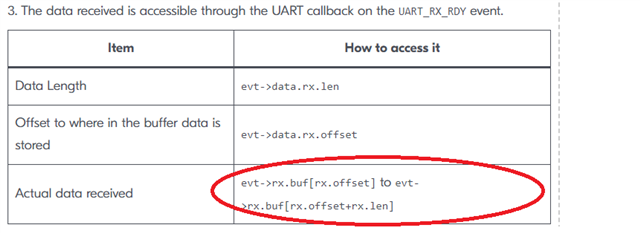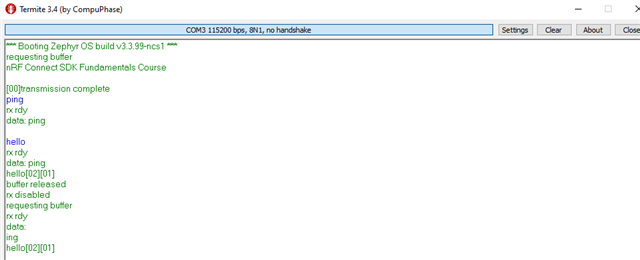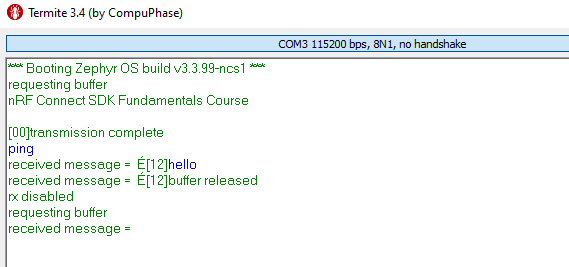I am working through the Nordic Developer Academy and got stuck at lesson 4 (UART receive)
In particular, I am confused about this part:

I have created a sample project and connected external CP2102 USB->Serial adapter to P0.06 and P0.08 pins.
The code that I use:
I am having issues understanding how to properly print out all the received data:
I tried to do:
but when I send the data via UART (using Termite) , the following is printed:

I would appreciate if someone could clarify how to correctly print out all the received data. Thanks in advance
Just for testing, I have also tried to print:




